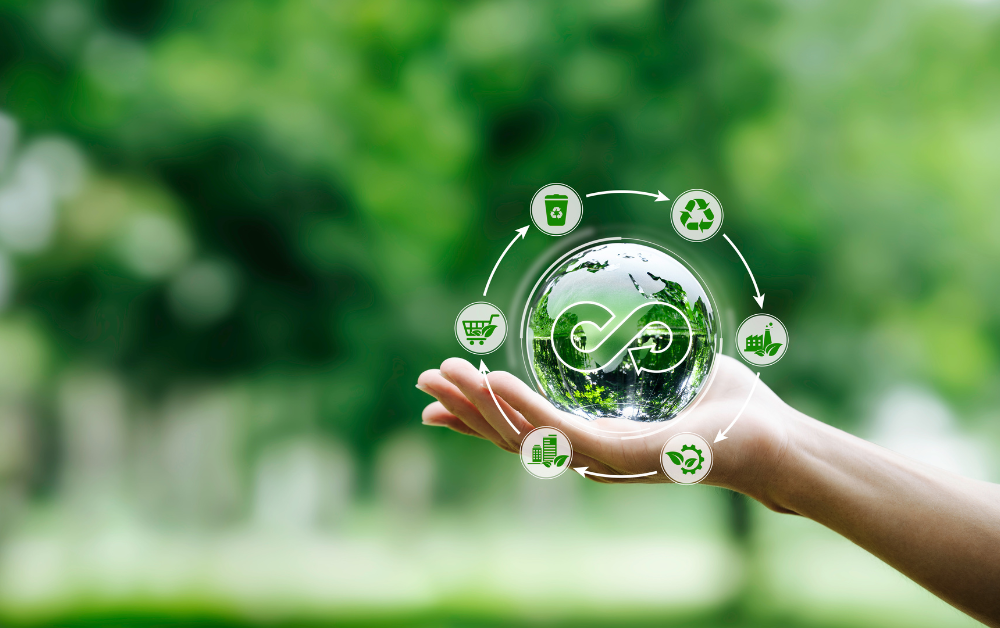In 2024, the landscape of consumerism is undergoing a profound transformation, driven by an ever-growing collective consciousness about environmental sustainability. With the effects of climate change becoming more pronounced and the urgency for action more apparent, consumers are increasingly making purchasing decisions that reflect their commitment to a greener planet.
A recent survey conducted by McKinsey & Co. offers compelling insights into this shift, which has been in the making for some time now, revealing that 66% of global consumers now prefer companies to actively reduce their own carbon emissions rather than resorting to external ‘Carbon Offsetting’ programs.

The Rise of Direct Action Over Carbon Offsetting
The McKinsey survey highlights a critical aspect of modern sustainable consumerism: the preference for direct action. Consumers are not satisfied with companies merely offsetting their carbon footprints through external programs. Instead, they demand tangible, in-house efforts to reduce emissions. This marks a significant departure from previous years when carbon offsetting was often seen as a viable solution for businesses looking to mitigate their environmental impact.
This preference for direct action underscores a shift towards greater accountability and transparency. Consumers want to see real changes in the way businesses operate, from sourcing raw materials to manufacturing processes and distribution practices. They are increasingly aware that genuine sustainability requires more than just symbolic gestures; it demands systemic change and innovation.
Sustainability as a Core Purchasing Decision Factor
The survey also reveals that sustainability is a critical factor in purchasing decisions for most consumers. 66% of all respondents, and an even higher 75% among millennials, consider sustainability when making a purchase. This statistic highlights a profound shift in consumer behavior, where purchasing decisions are not solely based on price or brand loyalty but are deeply intertwined with ethical considerations.

For eco-conscious consumers, buying a product is akin to casting a vote for the kind of world they want to live in. They seek products and brands that align with their values, prioritizing those that demonstrate a commitment to environmental stewardship. This trend is driving businesses to rethink their strategies, from product design to marketing, in order to meet the rising demand for sustainable options.
The Business Call to Action
With environmental stability ranking high on the priority list for a significant portion of the global population, businesses face a clear call to action. The findings from the McKinsey survey emphasize the importance of taking concrete steps toward a greener future. It is not enough to produce eco-friendly products; companies must also actively reduce their carbon emissions and embrace sustainability as a core value.
Businesses that listen to this call are not only meeting consumer expectations but are also positioning themselves as leaders in a rapidly evolving market. By integrating sustainability into their core operations, these companies are building resilience and fostering long-term loyalty among a growing base of eco-conscious consumers.

Forging a Path Towards a Sustainable Future
In this era of conscientious consumerism, the power lies in businesses that embrace and embody sustainability. Companies that take proactive measures to mitigate their environmental impact are not just responding to market trends; they are shaping the future of the global marketplace.
As we move forward, the integration of sustainable practices will be the hallmark of responsible and resilient businesses. For eco-conscious consumers, 2024 represents a pivotal moment in the journey towards a more sustainable world. By supporting companies that prioritize direct action on carbon emissions and sustainable practices, they are driving a cultural shift that places environmental responsibility at the forefront of business strategy. Together, consumers and businesses can forge a path towards a greener, more sustainable future.
 Food
Food Farmers
Farmers Sustainable Living
Sustainable Living Living Planet
Living Planet News
News